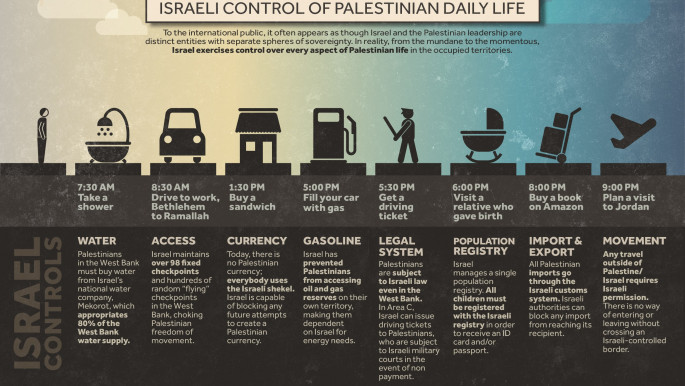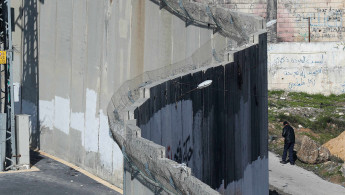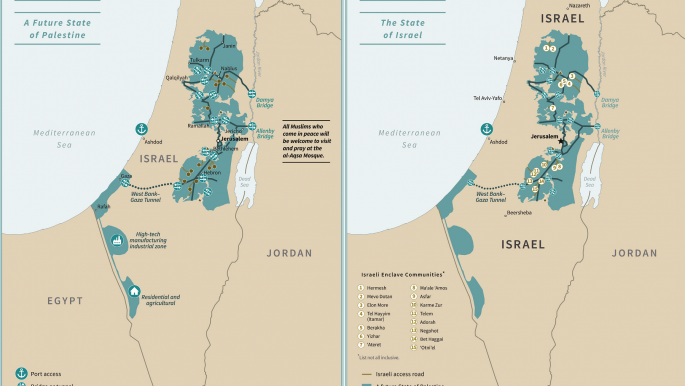Israel postpones West Bank annexation move - but not because of international law
Netanyahu had said the cabinet would vote on Sunday on extending Israeli sovereignity to dozens of Israeli settlements considered illegal under international law, as well as to the Jordan Valley. Previous pledges by Netanyahu to unilaterally annex a significant chunk of the West Bank have drawn international condemnation.
But the caretaker leader appears to have put annexation on the backburner to explore its legal ramifications and to coordinate the move with the United States, which revealed its long-delayed peace plan for the region on Tuesday.
A cabinet vote this week on annexing territories is not technically faesible because of various preparations necessary, including the need to consult Israel's attorney general, Tourism Minister Yariv Levin told Israel Radio on Wednesday.
Such consultations do not refer to the legality of the move under international law, however, despite Israel facing a possible war crimes probe at the International Criminal Court. Attorney-General Avichai Mandelblit has already stated that he would not regard annexation as illegal.
Israel has not had a permanent government in a year, following two inconclusive elections, and it's unclear if a caretaker government can embark on such a move.
Tel Aviv looks to coordinate the move with the US, which officially gave the greenlight for Israeli annexation drive with the big reveal of its so-called "Deal of the Century" on Tuesday.
David Friedman, the American ambassador to Israel, told reporters that a joint US-Israeli committee would need to ensure that the extension of Israeli sovereignty matches up with a "conceptual map" released by the administration showing the borders of a future Palestinian state.
"It is a process that does require some effort, some understanding, some calibration," he said. "I'm not going to speculate how long that will take. The president did use the word 'immediately'."
Palestinian officials and protesters have fiercely rejected Trump's plan, which would only allow Palestinians limited self-rule across chunks of territory linked together by roads, bridges and tunnels.
It also grants Israel virtually all of occupied east Jerusalem, including the Old City and holy sites.
Palestinians and the majority of the international community view the settlements in the West Bank and east Jerusalem - territories seized by Israel in the 1967 war - as illegal under international law and a major obstacle to peace.
Read more: Surrender to Israel or disappear: Trump's 'Deal of the Century' is an ultimatum to Palestinians
Levin, a senior member of Netanyahu's right-wing Likud party, appeared to acknowledge that almost none of the Palestinians' demands are met in the Trump plan.
 |
| [Click to enlarge] |
He said the Palestinian state it envisions is "roughly the same Palestinian Authority that exists today, with authority to manage civil affairs", but lacking "substantive powers" like border control or a military.
The plan put forth by Trump is the most generous and detailed proposal ever offered to Israel, and is a hit among Netanyahu's right-wing base as well as Trump's evangelical Christian supporters in the United States.
But its implementation could be delayed until Israel forms a permanent government, something that has eluded its fractious political parties for the last year. Benny Gantz, a former army chief and the leading contender to replace Netanyahu, also met with Trump over the weekend and has welcomed Trump's proposal.
Gantz announced late Wednesday that he would bring the Trump initiative before parliament for approval next week.
Hard-line Israeli nationalists have called for the immediate annexation of West Bank settlements ahead of the March 2 elections, the third in less than a year.
They have eagerly embraced the part of the plan that would allow Israel to annex territory but have rejected its call for a Palestinian state.
"That which is postponed to after the elections will never happen," Israeli Defense Minister Naftali Bennett, an extreme right-wing ally of Netanyahu, tweeted on Wednesday.
"If we postpone or reduce the extension of sovereignty [in the West Bank], then the opportunity of the century will turn into the loss of the century," he said.
Nahum Barnea, a veteran Israeli columnist, criticized the Trump plan in the Yediot Ahronot newspaper, saying it would create a Palestinian state "more meager than Andorra, more fractured than the Virgin Islands".
He cautioned that annexation would lead to "a reality of two legal systems for two populations in the same territory — one ruling, the second occupied. In other words, an Apartheid state".
Follow us on Twitter and Instagram to stay connected






 Follow the Middle East's top stories in English at The New Arab on Google News
Follow the Middle East's top stories in English at The New Arab on Google News


